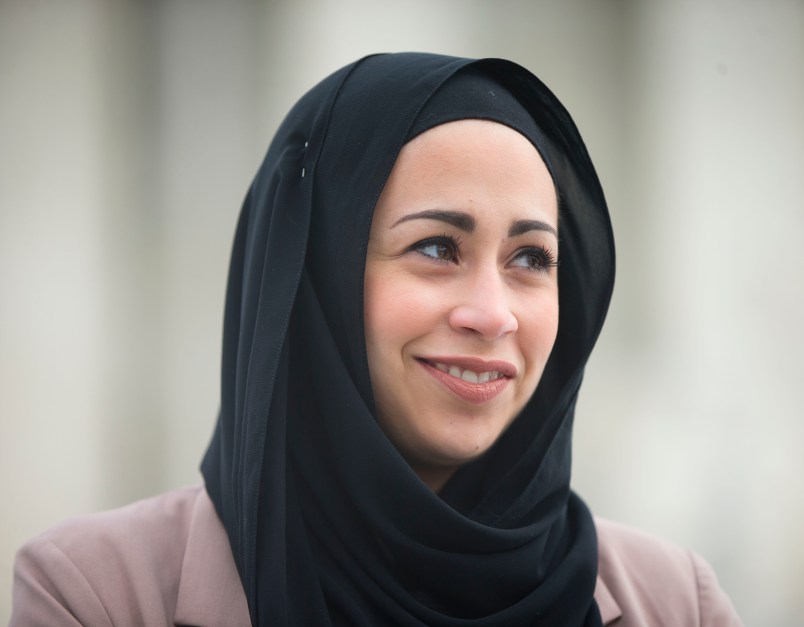UPDATE: June 1, 2015, 11:12 AM EDT
WASHINGTON (AP) — The Supreme Court ruled Monday for a Muslim woman who did not get hired after she showed up to a job interview with clothing retailer Abercrombie & Fitch wearing a black headscarf.
The justices said that employers generally have to accommodate job applicants and employees with religious needs if the employer at least has an idea that such accommodation is necessary.
Job applicant Samantha Elauf did not tell her interviewer she was Muslim. But Justice Antonin Scalia said for thecourt that Abercrombie “at least suspected” that Elauf wore a headscarf for religious reasons. “That is enough,” Scalia said in an opinion for seven justices.
The headscarf, or hijab, violated the company’s strict dress code for employees who work in its retail stores.
Elauf was 17 when she interviewed for a “model” position, as the company calls its sales staff, at an Abercrombie Kids store in a shopping mall in Tulsa, Oklahoma, in 2008. She impressed the assistant store manager with whom she met. But her application faltered over her headscarf because it conflicted with the company’s Look Policy, a code derived from Abercrombie’s focus on what it calls East Coast collegiate or preppy style.
Abercrombie has since changed its policy on headscarves and has settled similar lawsuits elsewhere.
The federal Equal Employment Opportunity Commission filed suit on Elauf’s behalf, and a jury eventually awarded her $20,000.
But the federal appeals court in Denver threw out the award and concluded that Abercrombie & Fitch could not be held liable because Elauf never asked the company to relax its policy against headscarves.
Justice Samuel Alito wrote separately to agree with the outcome, but not Scalia’s reasoning. Justice Clarence Thomas dissented.
The case is EEOC v. Abercrombie & Fitch, 14-86.
Copyright 2015 The Associated Press. All rights reserved. This material may not be published, broadcast, rewritten or redistributed.







I hate Abercrombie and pretty much everyone who wears their clothing, but I think they have a very good argument. A headscarf surely does not fit with the image of an obnoxious privileged preppy. If they want to make wearing Abercrombie clothing and only Abercrombie clothing a requirement for working there, I don’t see why they should be forced to make an exception for religious reasons.
Abercrombie however insists it is still too dangerous for Muslim employees to possess unopened cans of soda.
Of course he was.
So Antonin Scalia and John Roberts are imposing Sharia Law??? Somebody call Pamela Geller STAT!
If she just would’ve followed the high jab with a left hook and quick kick to the corporate nuts, she’d have been fine,
@dumbsnark